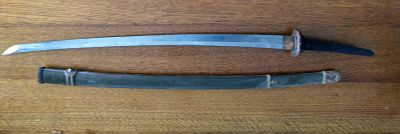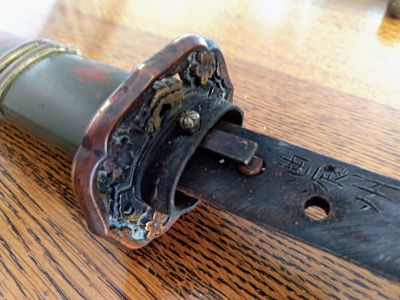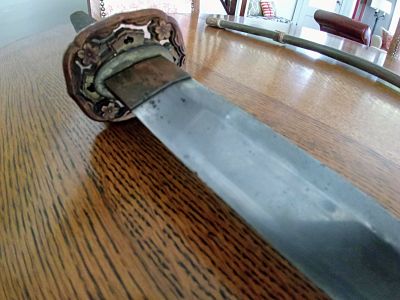I am new to this site and new to the world of swords. I have received a samurai sword that my father brought back from China at the end of WWII. It has been in a closet untouched all these years . He was in the Army Signal Corp in the CBI theater. I have attached a photo of the inscription on the tang. I would appreciate any suggestions or direction in how to translate the inscription or determine if the sword is authentic.
Thank you,
Ann J.
Picture of inscription on tang [ Download ]



